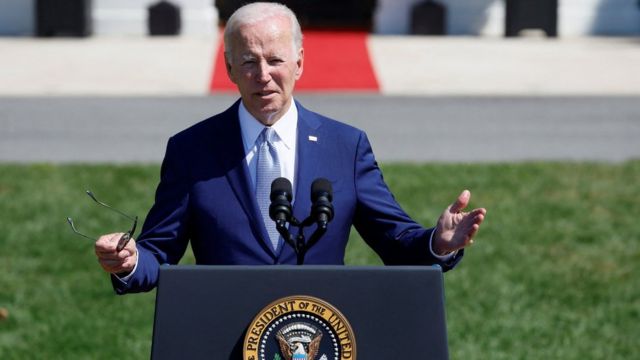A measure devoting $280 billion (£232 billion) to high-tech manufacturing and scientific research has been approved by US President Joe Biden amid worries that the nation is losing its technical edge to China.
Tax incentives are included in the investments for businesses constructing computer chip manufacturing facilities in the US. For a long time, business associations have advocated for increased government assistance, emphasizing the need to lessen dependency on China.
The urgency of their appeals was heightened by a worldwide shortage of microchips. Top Senate Democrat Chuck Schumer said the bill was a “game changer” that would ensure American leadership and prosperity in the next century.
“Authoritarians were cheering for us to lose and hoping we sit on our hands,” he said. “By enacting the CHIPS and Science Act we are making clear we believe another great American century lies on the horizon.”
Since 1990, the US has decreased its production of semiconductors, which are essential to everything from cars to mobile phones, from over 40% to about 10% of the global supply. The nation’s investments in the sector are not unique. In addition to China increasing its investments in research and technology, the European Union said this spring that it will allocate more than €40 billion to increase computer chip manufacture.
The semiconductor bill was opposed by the Chinese Embassy in Washington, which claimed it was reminiscent of a “Cold War mentality.”
Along with the semiconductor investments, the plan gives $200 billion to organizations like the National Science Foundation in an effort to increase funding for industries like robotics and wireless communications.
Mr. Biden referred to it as a “once in a generation” investment and said that it was already contributing to growth in the US, citing Micron’s intentions to invest $40 billion in the production of memory chips, which is estimated to generate 40,000 jobs. The White House just reached an agreement to promote a comprehensive plan to address climate change, and this is just one of their most recent successes.
This measure, in contrast to that plan, which was opposed by Republicans, received support from both parties despite significantly expanding the role of the US government in an area that is frequently handled by the private sector.












